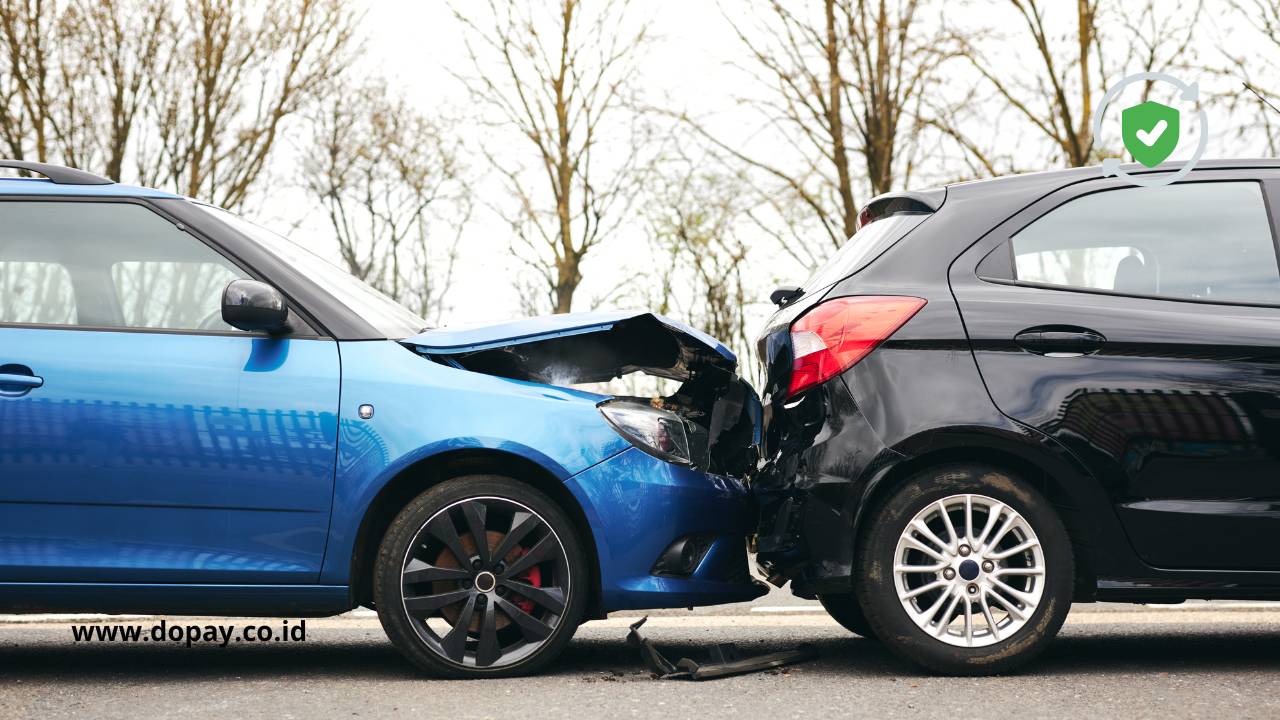The Importance of Car Insurance
Owning a car provides independence and convenience, but it also comes with responsibility. Accidents, theft, and other unforeseen events can happen at any time. This is why having car insurance is critical—it protects both you and your vehicle from potential financial losses. Understanding the importance of car insurance is not only a smart financial decision but also a legal necessity in many countries. In this article, we’ll explore everything you need to know about car insurance, including its importance, coverage types, benefits, and frequently asked questions (FAQs).
What is Car Insurance?
Car insurance is a contract between a car owner and an insurance company. In exchange for regular premium payments, the insurer provides financial protection against various risks associated with owning and driving a vehicle. This includes damages from accidents, theft, natural disasters, and liability for injuries or damages to others.
Why is Car Insurance Important?
- Legal Requirement
In many countries, having basic car insurance is mandatory. Driving without insurance could result in fines, license suspension, or even legal consequences. By ensuring you’re covered, you comply with the law while protecting your financial well-being. - Financial Protection
Accidents can happen at any time, even if you’re a careful driver. If you’re involved in an accident, car insurance helps cover the costs of vehicle repairs, medical expenses, or third-party damages. Without insurance, these expenses could quickly become overwhelming. - Covers Unforeseen Risks
Beyond accidents, car insurance also covers unexpected events like theft, vandalism, or natural disasters. Without this protection, you could be left without a vehicle or burdened with repair costs in the event of a disaster. - Protects Against Liability
If you’re found to be at fault in an accident, you may be liable for damages to other people’s property or for injuries they sustain. Car insurance helps cover these liability costs, which can sometimes reach thousands or even millions of dollars. - Peace of Mind
Knowing you’re covered by car insurance gives you peace of mind. You can drive confidently, knowing that if something unexpected happens, you’re not facing potentially devastating financial consequences on your own.
Types of Car Insurance Coverage
Car insurance policies typically offer a range of coverage options. Here are the most common types:
- Liability Coverage
Liability coverage is the most basic form of car insurance and is often required by law. It covers the costs if you’re found at fault in an accident, including medical expenses and damage to others’ property. It does not cover your own injuries or vehicle damage. - Collision Coverage
This type of insurance covers the cost of repairing or replacing your vehicle if it’s damaged in an accident, regardless of who was at fault. - Comprehensive Coverage
Comprehensive coverage provides protection against non-collision events, such as theft, fire, vandalism, or natural disasters. It ensures you’re protected from a wide range of potential risks. - Personal Injury Protection (PIP)
PIP covers medical expenses for you and your passengers if you’re involved in an accident, regardless of fault. This can also cover lost wages and other related expenses. - Uninsured/Underinsured Motorist Coverage
This coverage protects you if you’re involved in an accident with a driver who has insufficient or no insurance. It covers damages and medical expenses that the other driver can’t pay for. - Gap Insurance
Gap insurance is useful for those who lease or finance their vehicle. It covers the difference between the car’s current value and the amount you owe if the vehicle is totaled.
Factors That Affect Car Insurance Premiums
Several factors influence how much you’ll pay for car insurance premiums. Knowing what affects your rate can help you make informed decisions when choosing a policy:
- Age and Gender
Younger drivers, especially teenagers, are often considered higher risk, leading to higher premiums. Statistically, young male drivers tend to pay more for insurance than female drivers. - Driving Record
If you have a history of accidents, traffic violations, or claims, you may pay more for car insurance. A clean driving record usually results in lower premiums. - Vehicle Type
The make, model, and year of your vehicle affect the cost of insurance. Luxury cars, sports cars, or vehicles with high theft rates may cost more to insure. - Location
Where you live can impact your insurance rates. Urban areas with high traffic or crime rates may lead to higher premiums compared to rural areas. - Credit Score
In some countries, insurance companies use your credit score to determine your premium. A higher credit score may result in lower insurance costs. - Deductible Amount
A higher deductible (the amount you pay out of pocket before insurance kicks in) typically lowers your premium. However, this also means you’ll pay more upfront in the event of a claim.
Benefits of Having Car Insurance
- Financial Security
Car insurance provides a safety net, ensuring you won’t face overwhelming costs after an accident or other incidents involving your vehicle. - Legal Protection
Having the required insurance protects you from legal consequences, such as fines, penalties, or lawsuits. - Access to Better Repair Services
Insurers often have partnerships with repair shops, ensuring your vehicle is repaired with high-quality parts and services. - Medical Coverage
If you’re injured in an accident, your car insurance can help cover medical expenses, reducing your financial burden. - Protection Against Uninsured Drivers
Uninsured/underinsured motorist coverage protects you from having to cover damages yourself if the at-fault driver doesn’t have sufficient insurance.
How to Choose the Right Car Insurance Policy
Choosing the right car insurance policy can feel overwhelming, but it doesn’t have to be. Follow these steps to ensure you’re getting the best coverage for your needs:
- Assess Your Needs
Determine what level of coverage is right for you based on factors like your vehicle’s value, your budget, and your driving habits. - Compare Quotes
Get quotes from multiple insurance providers. Compare not only the cost but also the coverage options, discounts, and customer service. - Check for Discounts
Many insurance companies offer discounts for things like bundling policies, having a good driving record, or installing safety features in your car. - Read the Fine Print
Always read the policy carefully before signing. Make sure you understand the coverage limits, deductibles, and any exclusions. - Consult with an Agent
If you’re unsure about which policy is best for you, consulting with an insurance agent can provide valuable insights and help you make an informed decision.
Frequently Asked Questions (FAQs) About Car Insurance
- Is car insurance mandatory?
Yes, in most countries, basic car insurance (typically liability coverage) is required by law. However, additional coverage options like collision or comprehensive are optional but highly recommended. - What happens if I drive without car insurance?
Driving without insurance can lead to fines, license suspension, and even legal action. In the event of an accident, you would be personally liable for damages and medical expenses. - How can I lower my car insurance premiums?
To reduce your premiums, consider increasing your deductible, maintaining a clean driving record, and asking about discounts for safety features or bundling policies. - Will my car insurance cover rental cars?
Many car insurance policies include rental car coverage, but it’s essential to check with your insurer. Alternatively, rental companies often offer their own insurance. - What should I do if I’m in an accident?
If you’re in an accident, first ensure everyone is safe. Call the authorities and exchange information with the other driver. Contact your insurance company to report the accident and begin the claims process. - How does my driving record affect my insurance rate?
A clean driving record typically results in lower premiums. However, traffic violations, accidents, or claims can increase your insurance costs over time. - What does full coverage insurance mean?
Full coverage typically refers to a combination of liability, collision, and comprehensive insurance. It offers more protection but comes at a higher cost. - Can I change my car insurance policy at any time?
Yes, you can switch car insurance providers at any time. However, it’s essential to ensure there’s no gap in coverage between policies. - Do I need car insurance if I don’t drive often?
Even if you don’t drive frequently, car insurance is still necessary to protect against theft, damage, or accidents that could occur while your vehicle is parked. - What is the difference between comprehensive and collision coverage?
Collision coverage pays for damages to your vehicle after an accident, while comprehensive covers non-collision events like theft, vandalism, or natural disasters.
Conclusion
Car insurance is an essential part of vehicle ownership, providing financial protection and peace of mind in the face of unexpected events. Whether you’re a new driver or an experienced one, having the right insurance coverage ensures you’re not caught off guard by accidents, theft, or natural disasters. By understanding the types of coverage available and how to choose the best policy, you can protect yourself, your passengers, and your vehicle while on the road.
Don’t leave your safety and financial security to chance—invest in a comprehensive car insurance policy today!



